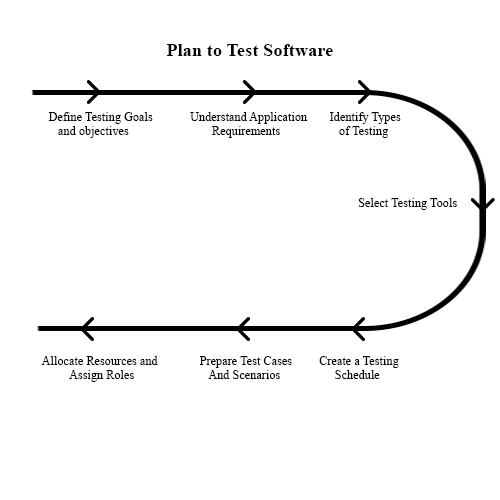AI Testing Tools: Top AI Software Testing Tools for 2025
What is AI Testing? A Complete Guide AI Testing is a revolutionary approach in the software development process, leveraging artificial intelligence to enhance the testing process. AI-powered testing tools and automation testing platforms are designed to handle complex testing needs, including regression testing, functional testing, and load testing, ensuring the overall quality of their software. AI software testing differs from traditional methods by using AI algorithms and AI-powered tools to automate and optimize visual tests and manual tests. Software testing tools powered by AI enable continuous testing and provide a comprehensive test automation platform. adopting ai technologies allows teams to incorporate AI into their test automation strategies. The benefits of AI testing include the ability to use AI to enhance testing capabilities, reduce manual intervention, and improve efficiency. Visual AI and other AI-powered test automation solutions address various aspects of software development, ensuring testing is thorough and effective. AI testing tools can help businesses stay competitive by ensuring their software is robust, efficient, and ready for market demands, showcasing the immense potential of AI-powered tools in modern software development. AI Testing vs Traditional Software Testing AI testing differs from traditional software testing by leveraging AI capabilities to streamline the software testing process. AI-driven testing utilizes ai-powered software testing tools and ai and machine learning algorithms to enhance testing efficiency and support end-to-end testing. The good part of AI testing tools include reduced testing efforts and improved performance testing outcomes. By adopting AI technologies, companies can use ai-powered test automation tools for api testing, testing and monitoring, and ai-driven test automation. These tools like test automation tool enhance the high-quality software delivery process. AI is used to improve test coverage and efficiency, reflecting current trends in AI within the industry. AI has revolutionized the landscape of software testing tools, offering ai-powered testing solutions that streamline the testing process. Organizations need AI to stay competitive and leverage tools for AI to achieve optimal testing across various platforms. Using AI in software testing provides significant advantages over traditional testing solutions. Use Case of AI For Testing Adopting AI technologies in software testing enhances the software development lifecycle. AI test automation tools leverage machine learning algorithms to automate the testing process, making automated testing accessible to software development teams. These AI-driven testing tools provide reliable insights into various aspects of software testing. By utilizing AI software testing tools, teams can improve their testing approach. With testing tools that use machine learning, organizations benefit from enhanced accuracy and efficiency. AI systems can help in testing using vision AI and other advanced techniques, ensuring higher quality and reliability of the software produced. AI and Machine Learning Adopting AI technologies significantly enhances the software development lifecycle by integrating AI test automation. AI software testing tools utilize machine learning algorithms to provide a more efficient testing approach, allowing teams to automate the testing process and streamline various aspects of software testing. Furthermore, AI-driven testing tools support automated testing accessible to a broader range of software development teams. The implementation of testing tools that use machine learning offers reliable software solutions, as AI systems can help identify critical issues earlier in the software development lifecycle. By leveraging AI test automation tools, organizations can enhance their testing using AI tools, ultimately improving the overall quality of their products. The benefits of AI in software testing are profound, as these software testing tools are designed to optimize the efficiency and effectiveness of the testing process. In conclusion, the incorporation of vision AI and other AI-driven testing tools signifies a transformative shift towards more intelligent, adaptive, and responsive software testing tools, fostering an environment of continuous improvement within the realm of software development. Automated Test Execution The incorporation of testing tools that utilize machine learning has considerably improved automated test execution. These tools employ machine learning algorithms to more precisely forecast potential defects. Artificial intelligence and machine learning optimize the testing process, while AI aids in identifying patterns and anomalies. 💡Embracing AI technologies guarantees efficient and dependable software testing. Challenges of AI in Software Testing The integration of artificial intelligence in software testing presents several challenges. While testing tools use machine learning to enhance efficiency, their reliance on machine learning algorithms may lead to unforeseen biases and inaccuracies. Moreover, AI can help streamline processes, yet adopting AI technologies requires significant investment and expertise. Additionally, the lack of standardized protocols and best practices for AI-driven testing can result in inconsistent outcomes across different projects.Another critical challenge is the interpretability of AI models. While AI can automate and optimize various testing processes, understanding how decisions are made by these models is essential for debugging and improving them. Furthermore, as AI systems learn from historical data, there is a risk that they may inadvertently reinforce existing biases present in that data. This could potentially lead to skewed testing results, which might affect product quality and user experience. Lastly, as the landscape of software development evolves, so too must the strategies for testing. With the advent of rapid development cycles such as Agile and DevOps, the integration of AI in testing must be agile and adaptable. Tips for Implementing AI in Software Testing Implementing AI in software testing necessitates a strategic approach to enhance testing capabilities. Organizations should consider utilizing ai-powered testing tools and test automation platforms to streamline the testing process. Incorporating AI algorithms not only improves regression testing but also optimizes functional testing and visual test scenarios. To maximize the benefits of AI, teams must evaluate their specific testing needs and select appropriate test automation tools. Employing ai-powered test automation can significantly reduce manual test efforts while facilitating continuous testing throughout the software development lifecycle. These advancements enable more efficient automation testing and enhanced testing efforts. Additionally, leveraging visual AI can aid in identifying issues that traditional software testing tools may overlook. By adopting AI technologies, organizations can unlock the full potential of their testing capabilities, ensuring a robust and reliable software product. Overall, the integration of AI fosters a proactive approach to test automation



